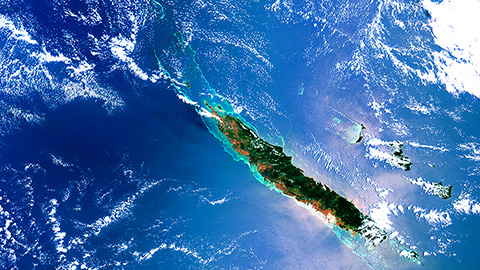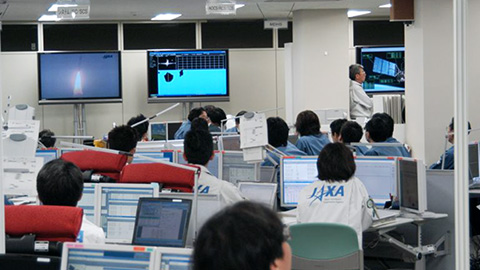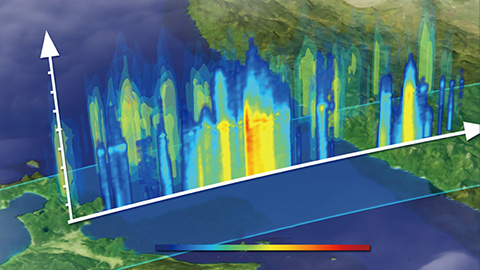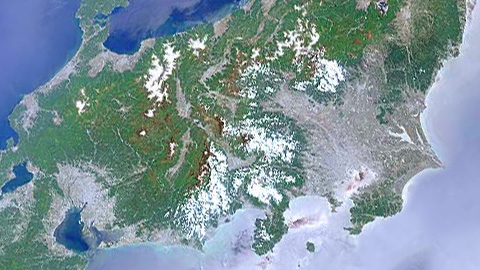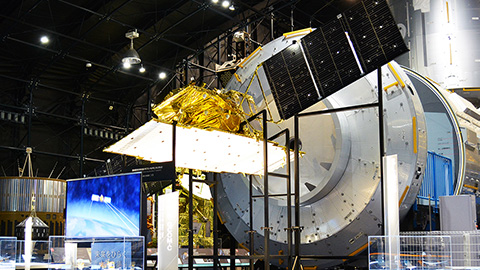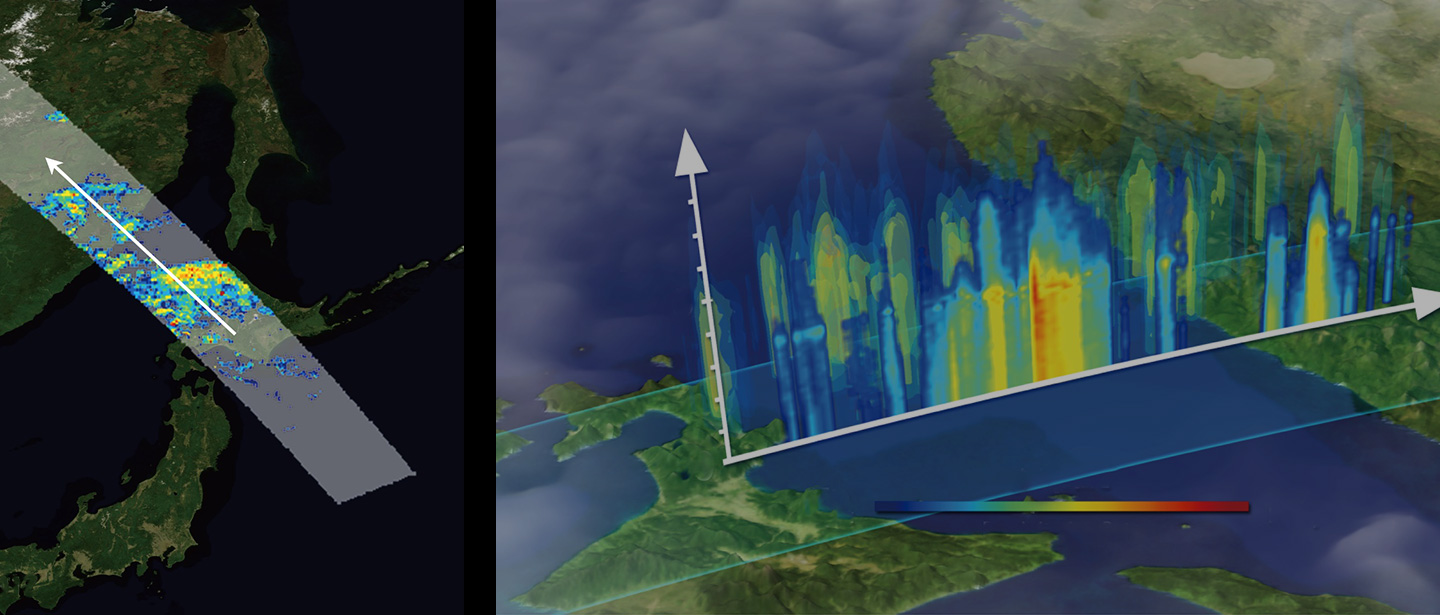The Committee on Earth Observation Satellites (CEOS) was established in 1984 to internationally coordinate Earth observation missions by satellites of various countries and regions. CEOS coordinates Earth observation missions of space agencies and discusses how to connect these programs with users. The Ministry of Education, Culture, Sports, Science and Technology (MEXT) and JAXA play a central role as one of the secretariats of CEOS in Japan, Europe and the United States.
Currently, 34 organizations are members and 27 organizations are associate members. By cooperating and coordinating the observation missions of the Earth observation satellites operated by these organizations (172 satellites as of 2020), we aim to make Earth observation satellites useful to society.
Compared to the time when CEOS was established, the communities of data users are now expanding and diversifying with the increase in the amount and variety of data from Earth observation satellites and the advancement of data utilization. In order to collect and coordinate the needs and expectations of satellite observations by these communities, CEOS is working closely with the Group on Earth Observations (GEO) and the Coordination Group for Meteorological Satellites (CGMS) to solve various regional and global issues (SDGs, climate change, disaster management, etc.).
Cooperation and coordination of observation missions
The cooperation and coordination of Earth observation missions include interoperability improvement, data format commonization, mutual calibration of observation instruments, and common verification and comparison of products, etc. CEOS is promoting these efforts based on the Virtual Constellations (VC) and Working Groups (WG) established for each observation target and cooperation theme. The VCs and WGs also collaborate with related international organizations and user communities.
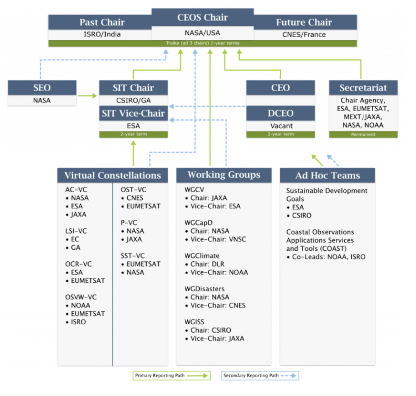
CEOS体制の概要
Data Applications Report of Earth Observation Satellite
JAXA chaired CEOS in 2015 (the 29th CEOS Plenary). As a Chair’s initiative, JAXA has been collecting and compiling case studies of the use of satellite data from space agencies around the world. This publication provides detailed information on value chains, social issues, and applications of case studies in diverse fields such as Transport, Disaster, Health, Energy, Climate change, Agriculture, Forest, and Environment.
●Data Applications Report of Earth Observation Satellite
●The 29th CEOS Plenary
●CEOS Newsletter





